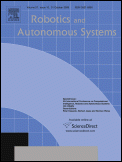
Special Issue on
IWINAC 2009: 3rd Int. Work-Conference on the Interplay between Natural and Artificial Computation

 |
Special Issue onIWINAC 2009: 3rd Int. Work-Conference on the Interplay between Natural and Artificial Computation |
 |
In Neuroscience and Artificial Intelligence (A.I.), linking sensory-based phenomenological data (sensations) to abstract cognition-oriented entities (concepts) is a fundamental and difficult objective. In both conventional computation and A.I., the issue of linking perceptions to either physical actions (Control Theory) or symbols (Computational Perception and Pattern Recognition) is one of the main challenges for important applied fields such as Robotics and Knowledge-based systems. A fundamental challenge for both disciplines, Neuroscience and Artificial Intelligence, is to link the low-level phenomenological world (associated to numerical variables and signals) to the high-level world of semantics and meaning, related to cognition.
The Robotics and Autonomous Systems special issue on “IWINAC 2009: 3rd Int. Work-Conference on the Interplay between Natural and Artificial Computation ” will contain the best revised papers related to "Intelligent Robotics and Neuroscience" introduced at the International Conference called "IWINAC 2009: 3rd Int. Work-Conference on the Interplay between Natural and Artificial Computation ", as well as some invited papers and it will also be dedicated to the memory of Prof. José Mira as a tribute to his remarkable personal and scientific legacy.
Important Dates:
Method of Review:
Invited contributions should be around 10 journal pages long (approximately 5000 words, plus a reasonable number of Figures/Tables). Submissions will be handled electronically through the EES (Elsevier Editorial System). When uploading a paper, the corresponding author has to choose the so-called Article Type: "Special Issue: IWINAC 2009" (drop down menu) in the EES system. It is also wise to type in the paper comment field: This submission is part of the special issue "IWINAC 2009: 3rd Int. Work-Conference on the Interplay between Natural and Artificial Computation ".
The Guest Editors will first evaluate all manuscripts. Those manuscripts that meet the minimum criteria are passed on for peer review by two external experts. The method of review in this special issue will employ single blind review, where the referee remains anonymous throughout the process. The Guest Editors board is responsible for the final decision to accept or to reject the article, based on the recommendations of the reviewers. Accepted papers will have to be sent to the Guest Editors electronically, both as source files (LaTex, MS Word, including all original Figures/Tables and References) and in printable version (PDF).
Guest Editors:
Related Link:
IWINAC 2009: 3rd Int. Work-Conference on the Interplay between Natural and Artificial Computation, IWINAC-2009